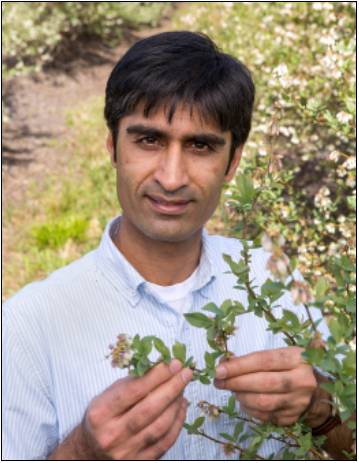Organic Production

Demand for organic produce is a huge opportunity for Georgia's farmers but there can be barriers for producers. Organic production is usually thought of as growing foods or fibers without the use of synthetic fertilizers or synthetic pesticides, or in the case of animals without using extra hormones or antibiotics. While these things are true of organic requirements, the larger picture is that organic production is a system of practices that relies on biological cycles to minimize diseases and pests, and to help maintain soil fertility. Although many farmers may utilize Organic Management Practices, for a farmer to market their products as organic they must complete the Organic Certification process and be in compliance with the requirements stated in the National Organic Program (NOP).
The USDA National Organic Program (NOP) regulations define organic agriculture as "the application of a set of cultural, biological, and mechanical practices that support the cycling of on-farm resources, promote ecological balance, and conserve biodiversity. These practices include maintaining or enhancing soil and water quality; conserving wetlands, woodlands, and wildlife; and avoiding use of synthetic fertilizers, sewage sludge, irradiation, and genetic engineering."
Practices that are prohibited in Organic Production are:
- Use of synthetic fertilizers: Substances formulated or manufactured by a chemical process or by a process that chemically changes a substance extracted from naturally occurring plant, animal, or mineral sources. There are some exceptions regarding use of synthetic and non-synthetic materials in organic production, so be sure to periodically check The National List of Allowed and Prohibited Substances
- Use of sewage sludge: Sewage sludge is a by-product of wastewater treatment that may be solid, semisolid or liquid. Sewage sludge that is treated to standards specified by U.S. EPA as suitable for land application are known as biosolids. Biosolids are high in carbon and some nutrients. Sewage sludge and biosolids are prohibited in organic production.
- Use of irradiation for food preservation: Irradiation is the application of ionizing radiation to food to improve the safety and extend the shelf life of foods by reducing or eliminating microorganisms and insects. It fragments the DNA of living cells which kills or interferes with cell division (FDA).
- Use of genetically modified organisms (GMOs): Organisms in which the genetic material (DNA) has been altered in a way that does not occur naturally by mating and / or natural recombination. It allows selected genes to be transferred from one organism to another, and also between nonrelated species (World Health Organization).
If you are looking for organic production information for specific crops, please see our Resources page to find other publications and useful tools.
Contacts in
Organic Production
Plant Pathology
Fruits and Vegetables
 Timothy Coolong
Timothy Coolong


